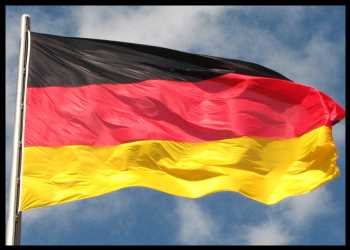German Business Confidence Climbs To Highest In 4 Months On Easing Recession Fears
Germany’s business sentiment strengthened to a four-month high in December as the economic downturn is feared to be less severe than previously estimated, results of a closely watched survey by the ifo Institute revealed.
The business climate index rose more-than-expected to 88.6 in December from 86.4 in November, data published by the Munich-based ifo Institute showed on Monday. The expected score was 87.4.
Companies’ assessment about their current situation improved after six consecutive falls. Their expectations also strengthened noticeably.
“German business is entering the holiday season with a sense of hope,” ifo President Clemens Fuest said.
The current situation index rose to 94.4 from 93.2. Economist had forecast a modest improvement to 93.5.
Expectations strengthened for a third month in a row to hit a six-month high of 83.2 versus 80.2 in the prior month. The expectations reading was also well above the expected level of 82.0.
In manufacturing, business morale rose substantially underpinned by strong expectations. Companies were also more satisfied with their current business.
Sentiment among service providers improved markedly again in December. This was mainly driven by the dwindling pessimism concerning the coming six months. Service providers assessed their current situation as better.
In trade, business morale advanced to its highest level since June. Businesses assessed their current situation as mildly positive for the first time since August, while the outlook is still pessimistic.
In construction, the business climate worsened slightly. Businesses were a little less satisfied with their current situation. Expectations brightened marginally, but remained very pessimistic.
Renewed rise in the business climate index and the general improvement in the surveys over the past two months suggests the outlook for the German economy has improved, Capital Economics economist Franziska Palmas said.
But the economist still expects the biggest euro area economy to experience a recession, albeit a shallower one than initially feared.
Earlier this month, the ifo Institute predicted that said Germany is set to experience a less severe recession next year as the economy would recover by the spring and rebound strongly with incomes rising faster than prices.
Gross domestic product is forecast to fall only 0.1 percent next year after an estimated 1.8 percent expansion in 2022.
Last week, the European Central Bank signaled that it will continue raising interest rates, at least in the first quarter of next year, in a steady manner. This month, the bank slowed the pace of tightening to 50 basis points from 75 basis points.
The ECB projected a less severe recession for the Eurozone in the first quarter, but said inflation is expected to remain high for a long time and expects it to return to its target band only in 2025.
Source: Read Full Article


